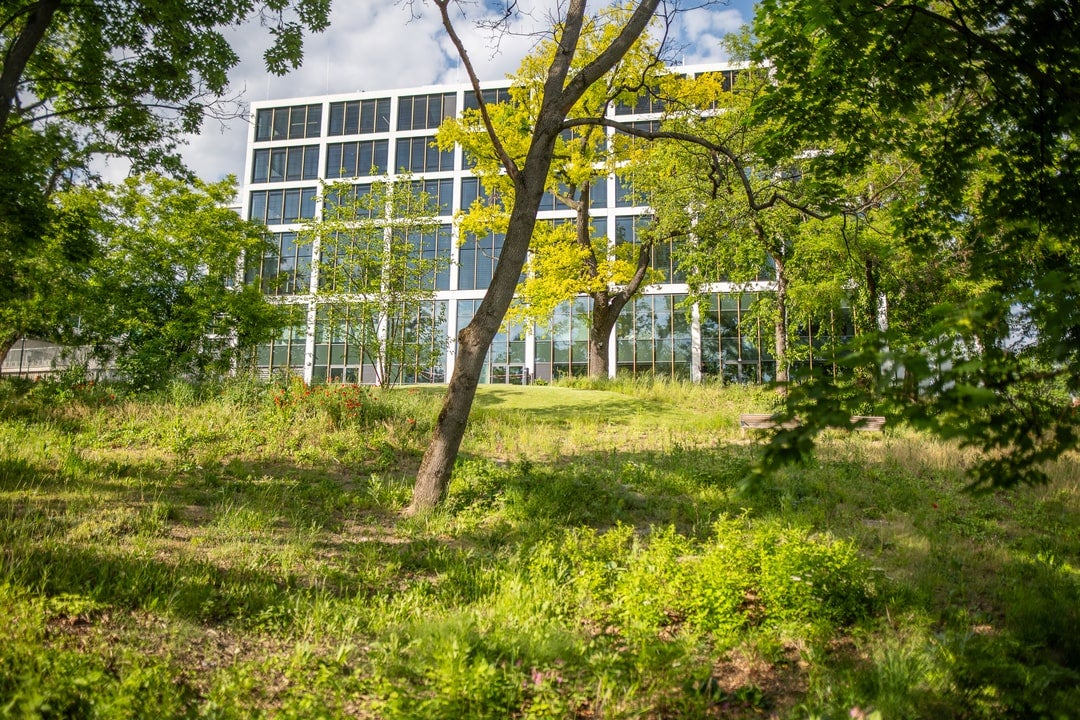Living Water, Fair Food, Waste Dilemmas and Meaningful Gifts: Sustainability Theme of the Month Continues This Autumn

This semester, we will cover topics such as life-sustaining water and the fight against drought, the relationship between sustainable eating and fair harvest, the dilemmas of waste reduction and the circular economy, as well as conscious gifting and donating.
Launched nearly two and a half years ago, the project’s aim is to address an environmental, nature conservation, or social sustainability issue each month, all of which also connect to Corvinus University. Given the complexity of these problems, it is easy to get lost in the overwhelming flood of information. A focused approach helps us gain a deeper understanding of both the connections and possible solutions.
In previous years, we have already addressed biodiversity, sustainable fashion, ecological footprints, and green mobility, as well as the concepts of active hope and climate futurism. We strive to tie topics to current events or international days, and our goal is to connect and support as many bottom-up, independent initiatives as possible through the project.
Visions, Numbers, and Challenges to aid understanding
Frightening statistics—many people first encounter sustainability issues through numbers that paint a grim picture. While these are important for highlighting the severity of our current situation, on their own they can be paralyzing and counterproductive. That is why, alongside numbers, we also focus on positive visions of the future that can motivate us toward change.
Every month, the article covering the topic will begin with a vision in the fall as well. We would like to involve the university community in creating these visions starting in October. The short, maximum 250-word-long, imagined future scenarios aim to outline a sustainable and liveable world where we would gladly live even in 2050.
Of course, understanding the present is equally crucial, so we will continue the articles presenting factual data and information. To reach the desired future, we need a clear picture of the present and be aware of the most pressing challenges, which must be addressed at individual, community, corporate, and global levels.
As in previous years, the final section of each theme will include challenges. These are designed to link today’s problems with our envisioned future through concrete actions—steps that can help us move closer from present realities to desired futures. The challenges involve both individual and community actions. While they are not solutions on their own, they restore a sense of agency, which in turn empowers people to engage in driving systemic change.
Current Topics This Autumn
We already addressed life-giving water and water-related challenges in March 2023, but due to the severe drought of 2025, the topic remains highly relevant. We will therefore begin September with this theme. Related events will include presentations on the rain gardens of the Gellért Campus, an Eco-Film Club screening and discussion of a documentary on wetland habitats, insights into how healthy soil can act as the best water reservoir, and reflections on the water footprint of digitalization—particularly artificial intelligence.
In October, we turn from water to another essential need: food. We will start with the principles of fair harvest, then explore the importance of short food supply chains, the environmental footprint of meat consumption, and the questions surrounding vegan lifestyles. Soil health, as the foundation of our food, will also feature, along with healthier and more sustainable dietary options.
In November, as in previous years, we will join the European Week for Waste Reduction. We will assess the effectiveness of the deposit return system, discuss whether it is enough to merely separate waste or whether overall amounts must be reduced, and reflect on the principles and dilemmas of the circular economy—with special focus on the scale of an economy that can remain sustainably circulated.
In December, aligned with the holiday season, we will examine reciprocity, conscious gifting, and donating. We will discuss how to give and receive consciously, ensuring that gifts are truly valuable and sustainable, and we will also introduce the concept of the gift economy as an alternative economic system.
Planned Themes for Autumn 2025
-
September: Water – The Source of Life and Humanity
-
October: Food – Fair Harvest and Sustainable Eating
-
November: Circularity – Dilemmas in Waste Reduction
-
December: Gifts – Conscious Giving and Donating During the Holidays
Alongside our own content and programs, we warmly welcome ideas, contributions, events, and grassroots initiatives from our students and colleagues. Submissions can be sent to dean.sustainability@uni-corvinus.hu, or you can find us in the Main Building of Corvinus University, office E.200.
Our goal is to connect these constructive initiatives—while preserving their autonomy—into a reinforcing network, a true alliance. Join our active community, too!
Author: Máté Kovács